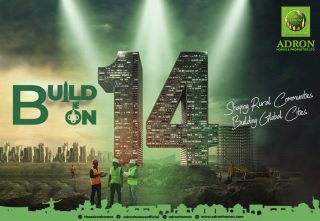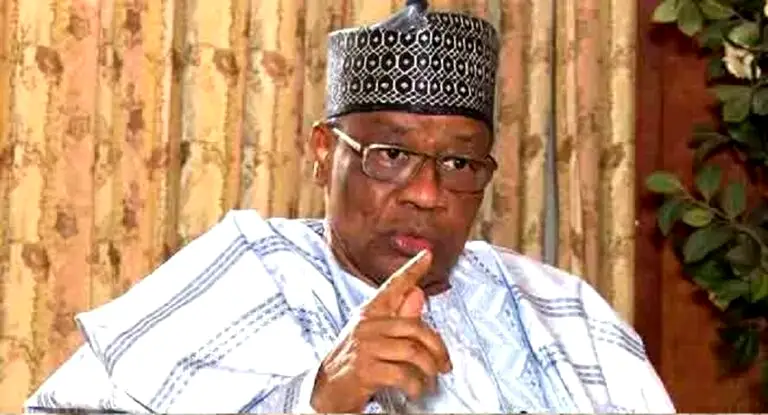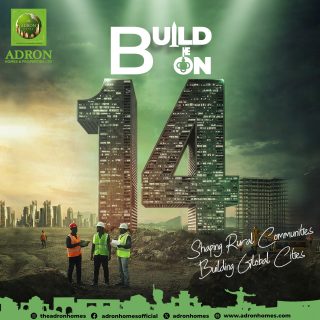In the days preceding Thursday, August 25, 2022, the day earmarked for the second stanza of the Ibrahim Badamasi Babangida Legacy Dialogue, expectation was sky-high that there might be a smoking gun or bombshell on what has become popularly known as the June 12 debacle.
As in the inaugural edition held August 13, 2021, many pillars of the Babangida Administration were expected. Also expected were movers of events in Nigeria, especially those in policy and governance. Of course, the former Military President, in whose honour the event was organised, would be there live. Newshounds, invited or not, would also be there to harvest materials for the next exclusive. And beyond the niceties that usually trail such landmark event, hard questions would be asked.

The dialogue’s faculty was to primarily speak to the broad theme: Issues in Africa’s Democratic Journey. But the pervasive insecurity in the land, the wobbling economy, 2023 general elections, agitations for succession by some federating units, among others, were expected to get copious mention as well. The legacies of General Ibrahim Babangida, his administration’s policy thrust-economic, social and political; and the general misconceptions about him-being the most-talked-about Nigerian leader, dead or alive, were all expected to come under scrutiny.
Things went well as anticipated by the organisers-the Ibrahim and Maryam Babangida Library and Museum. But there was no smoking gun about June 12.
This is because, like Dan Agbese observed in his biography on the genial General-IBRAHIM BABANGIDA: THE MILITARY, POLITICS AND POWER IN NIGERIA, General Ibrahim Babangida is the only person that can tell the true story of June 12. And he is the only person not willing to talk about June 12.
However, that never took the shine off the event. It was a befitting epilogue for the 81st birthday celebration of the Minna-born General held on Wednesday, August 17, 2022.
Even if General Babangida continues to refuse to shred the mist surrounding June 12, he remains the Editor’s delight. He knows news like the art and science of war, his first love. He knows what to say to make the interviewer’s keyboard sing, banging cover story after cover story. Even IBB’s silence makes news.
This was precisely what happened not too long ago when he granted me an extended interview at his Hilltop mansion in Minna, the Niger State capital. After meandering round some critical issues begging for his comments, he spoke on something which may seem trivial to many but which is important all the same. That is: his real place of origin.
Despite the volumes that have been written about his place of birth, Wushishi, many people still insist IBB is a Yoruba man from Ogbomoso. Is it because the General loves amala and ewedu, plus gbegiri?
Remember, Ogbomoso in present day Oyo State is the land of the great Chief Samuel Ladoke Akintola, former Premier of the old Western Region, who, like IBB, was a consummate polyglot that spoke Nupe, Hausa, Yoruba and English fluently.
Though Babangida may not be an extreme polemist like Akintola, he is an interviewer’s delight. Like Akintola, the 13th Aare Ona Kakanfo of Yorubaland, whatever IBB says, or refuses to say, makes an editor walk on the moon. Even his silence. From the comical to the serious, the man Nigerians call Maradona makes the headlines with the same ease that Diego Maradona mesmerised with football, scoring magical goals.
Babangida was his genial self as he sat with me in the referenced interview in Minna. He reflected on life, the genesis of his military odyssey, how the Babangida phenomenon began in Wushishi, his sadness, and regrets. He even wrote his epitaph for me.
Shola Oshunkeye and General Ibrahim Babangida during a recent interview in Minna
Shola Oshunkeye and General Ibrahim Babangida during a recent interview in Minna
You can’t put down the copy without reading the last sentence. Please, sit back and enjoy the interview:
Your Excellency, I don’t know whether you’ve heard what people have been whispering about you; that contrary to the widespread belief that General Ibrahim Badamasi Babangida is a northerner, you are actually a Yoruba man from Ogbomosho in Oyo State. Where exactly are you from?
(Laughs) This has been on since I was a student in primary school, and subsequently in secondary school; even when I enrolled into the army. My middle name is spelt in very many ways. In the South West, you spell it with a ‘GB’ (Gbadamosi). But mine is spelt as Badamasi. Again, there is another version in India, it is Gbadmash; and it means something different. It means a rogue! (Roaring laughter). So, everybody has his own interpretation of that name. But actually, I am from here (Minna). I was born and bred here. My parents came from a village not very far from here.
Okay, can you tell us your ancestry?
My ancestry?
Yes, sir.
It is a complicated mixture of Sokoto and Kano.
Nothing to do with Yoruba?
No. No. No.
Nothing at all?
No.
The way you have related with the Yoruba, and blended so perfectly with them over the years, make people believe you were originally from the South West…
(Cuts in…) That is what we find here in Minna. It is an interesting village because virtually everybody is a friend of everybody, both the Yorubas and the Igbos. And our parents have a lot of Yoruba friends. They settled here. They speak Hausa. We schooled with them. We know them. They have no problem whatsoever. For example, I had a professor friend, Debo Adeyemi; we were both born and bred here in Minna. He was in Zungeru. We went to secondary school together. He used to be Health Minister during General (Abdulsalami) Abubakar’s time. He, Abubakar, and myself are friends. Our parents were also friends.
Okay, what does the name, Badamasi, mean?
Surprisingly, it is the name of a book; a religious book. The book is known as Badamasi, which is an old thing. My grandfather recited the book and they gave him the name, for the knowledge.
What was your childhood like? What kind of boy were you growing up?
A bit naughty. But growing up, especially in this part of our environment, was most challenging in the sense that we grew up with each other and we considered each and every one of us a brother. Then, by going to school, our parents were encouraged by the colonial masters to send their children to school. My father worked with the Europeans as a liaison officer (an intermediary between the Europeans and the local people). So, he knew a bit about the value of education; consequently, it didn’t take him time to enrol me in school.
Was he educated?
I wouldn’t call him educated but he was literate. He could read and write.
And he could flow well when people discussed contemporary issues…?
Yes, but in the local language.
Was the idea of taking a career in the military from him?
I think it was from the then Minister of Defence in charge of army, who was from Bida, not very far away from here. He came to our school, trying to recruit people. In those days, there was a general drive to encourage people from the northern part of the country to join the military. So, that minister, who was also from Niger State, took pride in coming to our school to talk to us about career in the military. In our final year, he came, talked to us and asked: how many of you are going to join the army? A lot of hands went up and he took our names there and then. As soon as he went back to Lagos, he sent us forms. We filled the forms. We went for the examinations and medical tests. Behold, after some weeks, they wrote us personally, as individuals, to say we had been successful in the selection board of the Nigerian Army. And we went. That was the beginning of my odyssey in the Army.
At what age did your Army story begin? And what year was this?
That was in 1962. I’m sure none of you was born then (laughs, pointing at others in the room).
If you had not chosen the military, what other career choice would you have made?
Surprisingly, I wanted to be an engineer but my parents encouraged me to go in for administration. But the military took me away from all that. And I’m grateful for that. Maybe, it is divine.
Even in the military, you could still have been an engineer if you really wanted to…
Yes, I could have chosen the Nigerian Army Engineering Corps. Normally, when you are graduating, officers will come to talk to you about prospects in their respective corps. The engineers will come to talk to you. Infantry people will come and say join the infantry. Signals/Communication will say: come and join. That is, talking of people like the late General Murtala Muhammed, Alfred Aduloju, Francis Aisida, and so on. These were all communication officers and people like us decided to join what we called the Armour, where we used tanks and armoured-fighting vehicles.
What was the attraction to the Armour? That, to me, seems to be a very hard part of the military.
The attraction was as it relates to the job. We pride ourselves by saying that we are the combat arm of army; that we are not like the infantry who go mostly on foot. So, there is always a competition about who is more important during combat – the tank or the ordinary man walking in the street. We will tell them that those of us that are highly mobile have more brain.
General Ibrahim Badamosi Babangida
General Ibrahim Badamosi Babangida
If you look this way at 77, one could imagine how you were at 17 or 19, very handsome, soft-spoken and all that. How did you deal with the girls?
I was going to believe that you would come with that conclusion. But let me give you a story to answer your question. When I told my wife to let’s get married, she looked at me and said: ‘You can’t be serious’. I said: why? She said that the impression she had was that we were playboys. So, I said I had decided I didn’t want to be a playboy again. I wanted to settle down. I think I convinced her that I really meant I was going to settle down.
INSURGENCY, ARMED BANDITRY, ET AL
What is your take on the continuing insecurity in the land? Despite what government says it is doing, despite the best efforts of the government, people still get killed by terrorists and bandits everywhere and everyday day; killings everywhere.
To be honest, when insurgency starts, government-be it military or civilian-has to realize that you are not fighting against a conventional army. You are fighting an irregular army. So, you have to apply irregular tactics. Now, the aim is when you resort into this, all the insurgents are interested in is to inflict maximum casualty on the society through wanton destructions and killings. Why do they have to do that? This is part of the strategy- to make the ordinary person feel insecure and afraid that people he voted for are incapable of protecting them. That is the whole aim of insurgency and this is why they go and blow up a market, blow up an ammunition dump, blow up everything, attack people in the mosque, church, on the farm, anywhere. So, you have to approach it differently.
You need both the men, the ordinary people, and what we call psychological warfare. You need the support of the people. You need to make the people believe you, believe that you are there to protect them and you are there to make sure that what you are paid for is what you are doing. That you are also capable of defeating those people who are causing trouble. There has to be a change of approach, a change of tactics. These are the ways to fight it. It happened in Northern Ireland. For 20 years, people were blowing up this, blowing up that, and so on. When this happens, it makes people lose confidence in government. This is what is happening.
What’s the major drawback in the way we are approaching the fight against insurgency and, perhaps, the herdsmen/farmers problem, as well as armed banditry?
I think the major drawback is: maybe the troops are over-stretched. If they are able to establish the points, specific areas, then, specific actions could be taken. That will limit the exposure; the stretch will be limited so that you can have it within control. But if you have to man every position where there is a problem, then, you may end up not having enough troops to meet up those areas. You may stretch yourself too thin.
(At a point in 2018) General Gowon said with the way things were going, if the problem (insurgency, herders/farmers clashes, armed banditry) was not properly tackled, it could lead to civil war. What do you think?
He was right.
He was right?
Yes.
Why?
Because of the nature of the problems. Let’s take two or three states as example: Taraba-you could easily say it is ethnic; Borno, Sokoto and Yobe, maybe religious; Zamfara (and maybe Birni Gwari)-banditry. Again, Kaduna and Abuja-banditry. In Kaduna, people take people for money-economic. They hold people, and people pay ransom. So, it has become a business enterprise.
The people are there. You just have to put all these together to avoid it (escalating into civil war). But if one takes over the other, it becomes more rampant.
MY EPITAPH
Despite everything sir, you still look strong. I see you still going on a marathon by the grace of God; going from strength to strength. But when you begin to enter the twilight of age, what are those things that you consider as regrets, things you would have naturally loved to do differently? Two, how would you want humanity to remember you? Lastly, I want you to write your epitaph for us.
I will start with the epitaph: ‘Ibrahim Babangida, a Nigerian who served his country to the best of his ability, knowledge, and dedication’.
And how would you want to be remembered?
As a man who came, saw, worked, and died.
What are your regrets?
The tendency to be misconstrued or misunderstood. I get misunderstood easily.
Is it because you played games with issues, a situation that makes people call you Maradona?
That is, assuming that everybody should be able to play games; assuming we are on a level playing ground. So, I tell you my regrets, and I will put it seriously: people don’t like to look at the message but the messenger. So, you can always kill the messenger and not the message.




